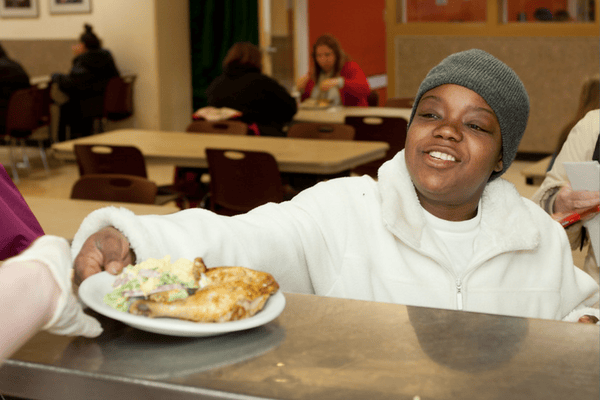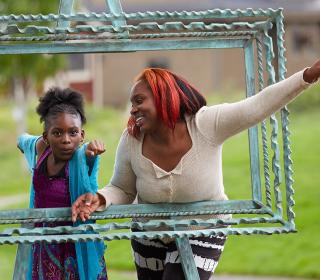COVID-19’s Impact on Housing and Homelessness
Housing is one of the most fundamental human necessities, yet it is something many people struggle to maintain. With rental rates in King County rising 6.4% since 2019 and unemployment rates skyrocketing to 16.6% in 2020 due to layoffs, business closures, and health concerns during the peak of the pandemic, the local homelessness crisis is yet another byproduct of the social and economic inequities exacerbated by COVID-19.

Although Washington’s minimum wage recently increased to $14.49 an hour, BIPOC households — particularly Black households — still have a significantly lower median household income than White ones. When people have an annual income under $35,000, they are more likely to be behind on housing payments, and statistically, evictions in King County disproportionately target BIPOC communities. Black adults alone are evicted 5.5 times more often than White adults.
What does this mean for the homelessness rates in King County? Unfortunately, the exact numbers are a little hard to quantify due to the inconsistent definition of “homelessness.” Even so, the undeniable fact is that homelessness remains a large issue in our community.
Angeline’s Day Center
Since 1987, YWCA's Angeline’s Day Center has provided safety and support to women experiencing homelessness in the Seattle area. Our drop-in services offer women meals, overnight shelter, laundry facilities, showers, health care access, and perhaps most importantly: advocates. These advocates help with tasks such as getting an ID or completing Supplemental Security Income or Department of Social and Health Services paperwork, and they help connect women to other community resources such as services for housing, employment, and stability.
Unfortunately, when COVID-19 hit, many of these essential services were paused or reduced for the safety of Angeline’s staff as well as the women they served. “It was a difficult decision,” says Lilliann Hansell, Angeline’s Program Manager. “We were working hard for our community and our women, but COVID affected us and many other homeless services at the time.”

In the past, Angeline’s assisted 150 - 200 women daily, but during the pandemic that number dropped to 50 - 75 people a day. Because Angeline’s was unable to offer the same capacity for overnight shelter that they normally maintained due to health and safety concerns, staff had to find other ways to help the women they served. “We had hotel vouchers, and we had about 80 women in hotels while still making sure there was safe social distancing,” says Lilliann.
But Angeline’s overnight program wasn’t the only service affected. Before the pandemic, Angeline’s regularly connected women with advocates and folks from other organizations who could help them maintain safety and stability. However, COVID quickly made this a difficult task to continue.
Because of the reduced capacity of many shelters and the closing of others, people who relied on these resources were forced to stay in tents, encampments, and other dangerous spaces during the peak of the pandemic. “Many churches and organizations were volunteer run by older people, and they weren’t able to continue that,” explains Lilliann. Instead, “we had to give [women] referrals to community centers and vouchers to hotels. It was a change for everyone; it was a big change.”
A Community Based on Trust
With their soft reopening on October 3, Angeline's staff look forward to slowly building back to pre-pandemic capacity while still protecting program participants. With Angeline’s Day Center located centrally downtown, it’s easy for a lot of women to access, and Angeline’s offers many of their services without requiring women to stay overnight, setting it apart from other shelters. With these services, staff hope to do more outreach and get more women into their overnight program, especially as the days start getting colder and darker.
“We focus on harm reduction: we meet women where they’re at. We offer immediate emergency services, mental health care, shower and laundry resources, and we connect them with case managers. We hope to help them obtain permanent housing, but we know that isn’t the fit for everyone.”
Understandably, many women who have experienced chronic homelessness have trust issues. With this in mind, Angeline’s and their advocacy team take a different approach to healing and helping than most: community building. “A lot of women that have come in just need someone to listen to how they’re feeling,” Lilliann says. “I think that’s a really big key of building trust and a good relationship with that individual: taking the time to hear what they’re saying.”

BNBuilders refreshing Angeline’s Day Center.
But it isn’t just Angeline staff who work to promote that sense of community. “We have nursing students who come in [from SPU and UW], and I tell them when they first start to do blood pressure checks so they can have one-on-one conversations with [patients],” explains Lilliann. Pre-COVID, they also had volunteers who came in to teach fun classes like drawing, painting, or knitting. “It gives the ladies something to engage in, and it kind of builds up their community. We'd like to get that going again at some point.”
Thanks to Angeline's services, advocates, and the various resources they provide, women there are able to transition from surviving to thriving. To Lilliann, the impact they have on the community is clear. “So many women say that the staff and programs that [Angeline’s] offers gives them hope, and it helps them get their life back on track. Instead of being viewed as just a homeless woman, they’re viewed as a woman in society.”
Interested in volunteering at Angeline's? Contact volunteer services to see how you can support Angeline's. You can also check out Angeline's page for items needed.
Ana Rodriguez-Knutsen is the Content Specialist for YWCA's Marketing & Editorial team. From fiction writing to advocacy, Ana works with an intersectional mindset to uplift and amplify the voices of underrepresented communities.
We share the stories of our program participants, programs, and staff, as well as news about the agency and what’s happening in our King and Snohomish community.


